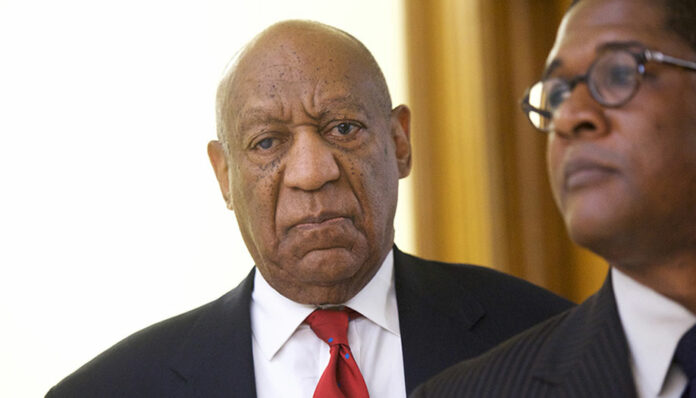
By Zak Goldstein, Special to NNPA Newswire
-

Zak Goldstein is a Philadelphia-based criminal appeals attorney with the firm, Goldstein Mehta LLC. You can visit his website at www.goldsteinmehta.com
Bill Cosby, who in 2018 was convicted and sentenced to prison on aggravated indecent assault charges, has lost his bid for an appeal to the Pennsylvania Superior Court.
Zak Goldstein, an attorney who specializes in criminal defense appeals in Pennsylvania, told NNPA Newswire that the court’s denial of Cosby isn’t the last hurrah for the actor and comedian.
Goldstein, who does not represent Cosby, outlines what’s next for Cosby and his team. ~ Editors
Unfortunately, the majority of criminal appeals in Pennsylvania are denied by the Superior Court – meaning it is relatively rare for them to reverse a criminal defendant’s conviction or sentence.
In my experience, this seems to hold true whether the case was a high-profile case or not.
It happens, but the error committed by the trial court has to be significant AND preserved by the trial attorney, meaning the trial attorney must have made a timely objection at the time that the error occurred.
The case law directs the Superior Court to provide a great deal of deference to the rulings of the trial judge for most evidentiary issues.
For example, the issue of whether the other accusers who were not actually part of the case should have been allowed to testify is an issue where the Superior Court applies an “abuse of discretion standard.”
This means that they will not review the issue for whether they would have admitted the evidence themselves if they were initially making the ruling, but instead they look at whether it was unreasonable for the trial judge to make that ruling.
Unless the judge was clearly wrong, they are not going to reverse the conviction for that reason.
With respect to prior bad acts evidence, such as these other accusers, trial courts often let this type of evidence in where the Commonwealth can show that the allegations were similar or somewhat similar to the allegations in the current case, and the appellate courts usually approve of this.
It then becomes incredibly difficult to obtain a fair trial as this type of propensity evidence is overwhelmingly prejudicial.
This is particularly true in cases involving sex offenses. Most cases involving alleged sex crimes do not involve forensic evidence, and there are usually not any witnesses other than the complainant.
Therefore, prosecutors have responded by pushing for rules which make it easier to obtain a conviction and defend a conviction in these types of cases.
By piling on with other unproven allegations, even where the defendant is not charged with those offenses, the prosecution increases its chances of obtaining a conviction.
In my view, the case law which the Superior Court followed in this case does not adequately recognize the overwhelming, prejudicial effect of this type of evidence and the way in which it makes it incredibly difficult to obtain a fair trial on the actual allegations in question.
It is not surprising to me that the first trial, where only one “prior bad act” was allowed into evidence, resulted in a hung jury while the second trial, where more accusers were allowed to testify, resulted in a conviction.
This type of evidence is admitted in criminal trials every day throughout the state.
The thing that was really baffling to me in this case was that the ruling changed in the Commonwealth’s favor after the first trial.
Mr. Cosby has a number of potential avenues through which he could continue to pursue his appeal. First, he could file an application for re-argument en banc.
The initial ruling by the Superior Court was made by a panel of three judges.
The application for re-argument en banc asks the court to have a panel of nine judges review the case instead.
If the court votes to grant re-argument, then the opinion would be withdrawn, and a new briefing schedule would be set. Nine Superior Court judges would then consider the appeal.
His second option is to forego the application for re-argument and appeal to the Pennsylvania Supreme Court by filing a Petition for Allowance of Appeal.
This would mean asking the Supreme Court to review the case. The PA Supreme Court does not have to accept an appeal.
Instead, they typically only review a case when there is some new issue for which there is no case law or where the case law has become outdated, when the Superior Court’s ruling is clearly incorrect, or when there are conflicting opinions between panels of the Superior Court that cannot really be reconciled. The PA Supreme Court does not hear very many cases each year. The Pennsylvania Supreme Court, however, has been relatively progressive on criminal issues recently.
Finally, with respect to a direct appeal, if re-argument and a Petition for Allowance of Appeal are unsuccessful, he could appeal to the United States Supreme Court if there was some federal issue involved that he would like to raise.
It is not too late to file a Post-Conviction Relief Act Petition and allege the ineffective assistance of counsel.
Generally, direct appeals come first, meaning that a defendant who is unhappy with the outcome would first ask the Superior Court and possibly the Supreme Court to overturn the conviction or sentence.
When that fails, the sentence becomes final, and a defendant can file a Post-Conviction Relief Act Petition (PCRA) and allege that the lawyer did something wrong.
A direct appeal deals with errors made by the judge, while a PCRA Petition alleges errors made by the trial and/or appellate attorney. You typically have one year from the date on which the sentence becomes final to file a PCRA Petition.
The sentence does not become final until thirty days after the Superior Court affirms a conviction or ninety days after the PA Supreme Court affirms a conviction.
The direct appeal, if you are going to file one, has to come first as you cannot file one after litigating a PCRA if you have missed the deadline, and they cannot be litigated at the same time.
A PCRA Petition goes back to the trial judge who heard the case for an initial ruling. If the trial judge denies it, then there can be another round of appeals to the Superior Court and the Supreme Court.
If those are unsuccessful, a defendant can file a Habeas Petition in federal court again alleging ineffective assistance of counsel, but it is not easy to overturn a state court conviction in federal court.
Zak Goldstein is a Philadelphia-based criminal appeals attorney with the firm, Goldstein Mehta LLC. You can visit his website at www.goldsteinmehta.com, or follow him on Twitter @ZakTGoldstein.


